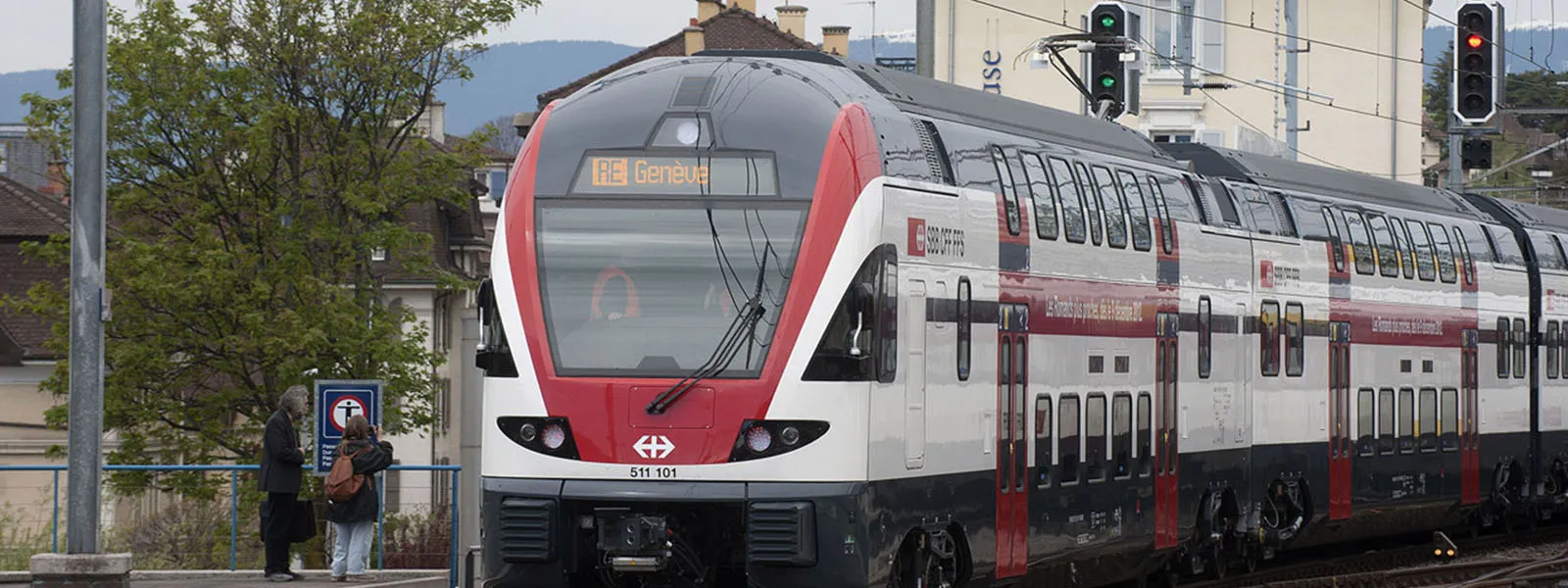SBB
Swiss railway network operator Schweizerische Bundesbahnen (SBB) needed a robust workforce planning and optimization solution.
Real-time planning requires a high performing, future-proof system like DELMIA.
Simple, personal, connected travel
New technologies and digitalization continue to drive developments around mobility. For railway network operators like Schweizerische Bundesbahnen (SBB) in Switzerland, this momentum presents both challenges and opportunities. More than ever, competition between transport providers for a place in the mobility chain is intensifying, operating costs are rising, public funds are growing scarcer, and other modes of transport are becoming cheaper. That’s why SBB is on a mission to harness technology to become more efficient and punctual while staying ahead of the environmental curve, building a railway of the future that is simple, personal, and connected.
With a 3,000-km track network, SBB is the main railway operator in Switzerland and manages one of the densest railway networks in the world. The company has a 30,000-strong workforce, including 5,800 train drivers and attendants, who all come together to help transport over 1.3-million passengers and 200,000 metric tons of freight to their destination every day.
SBB uses a system called SOPRE (Simulation, Optimization, Planning of Resources), powered by DELMIA Quintiq, to manage its resources as efficiently and effectively as possible. This planning solution covers three major areas: rolling stock timetable, human resource requirements, and scheduled activities, such as weekend breaks and holiday tours. SBB uses it to handle three phases of planning: annual planning, to define the general timetable and overall capacity requirements; monthly planning, which looks 20 weeks ahead, taking into account planned events, construction works, and seasonal changes; and daily operational planning, reacting to live events, redistributing staff, and ensuring the network continues to operate a good service.
“By its very nature, SBB’s network is highly dynamic and unpredictable,” said René Moraske, senior project manager at SBB. “Every day, several times a day, unplanned events occur, whether it’s a medical emergency, a natural disaster such as a landslide, weather disruption, or track and train damage—it can lead to delays and diversions, and it must all be handled with minimal impact on the railway service. Of course, this all has an impact on our staff too. This extreme dynamic in our network demands SOPRE in real time.”
Challenge
Swiss railway network operator Schweizerische Bundesbahnen (SBB) needed a robust workforce planning and optimization solution to handle the thousands of train drivers and attendants it employs in the most efficient way, while offering the best possible customer service. The system needed to be scalable, operate in real time, and be capable of handling a multitude of complexities, including unplanned events and local employment laws.
Solution
SBB built a system called SOPRE (Simulation, Optimization, Planning of Resources), powered by DELMIA Quintiq. This comprehensive, on-premise planning solution covers SBB’s timetables and human resource requirements, empowering it to plan ahead effectively and manage its daily operations with real-time data.
Benefits
With its high-performing, future-proof system, SBB can feed huge amounts of data into SOPRE to determine the best possible workforce schedules, optimize its resources, and react quickly to live events. The company can redistribute resources at a moment’s notice and make best use of the staff available each day. DELMIA supports SBB to remain compliant with specific legal workforce requirements and is constantly adapting with its changing business requirements.
A modern, scalable solution
When SBB’s legacy planning system was nearing the end of its life, the business took advantage of the opportunity to invest in an industry-leading workforce planning system that would support it to modernize its processes, run more efficiently, and establish a closer technical relationship with rolling stock planning. As such, SBB required a system with high availability and powerful enough to support all its different operations in real time.
“Our production environment is made up of eight servers, 340 cores, 15TB of memory, and 12TB storage databases,” Moraske said. “The system must be available 365 days a year so it’s distributed across two data centers. Our software distribution is complex too. We have multiple systems that deliver data to SOPRE, covering interfaces for rolling stock as well as timetables. The data imports take place every five minutes, giving us a constant wave of updates to the system. This information is then exported to applications used by the train crew. The system is in a constant state of motion.”
Scalable and adaptable, DELMIA was, therefore, a natural choice.
“Real-time planning requires a high performing, future-proof system like DELMIA,” Moraske said.

Customized to handle complexity
The DELMIA workforce planning solution was rolled out in three major stages across SBB.
“We started with the smaller population of stub planners and frequency lifters,” Moraske said. “Here, the risk was the smallest, should it not work. Then, we brought in the train conductors, which amounted to the planning of 2,500 people. Finally, in the third phase, the train drivers went live. Again, that included 2,500 colleagues.”
Not only did the system need to be able to grow with SBB, but it also had to be customizable to meet SBB’s very specific and diverse requirements.
“The system needed to be operational in German, French and Italian, which makes the design very complex,” Moraske said. “We also have five departments which function with different time rules. For this alone, we have 200 knowledge tables. To reduce the complexity, we needed to simplify our processes.”
Meeting legal requirements
One of the main challenges SBB faces is complying with the various legal requirements in force across its network, such as mandatory rest periods. These legal requirements change depending on locality, meaning that the company must continuously adapt its operations to remain compliant.
“We are constantly developing the system to adapt to our changing needs, in terms of business and legal requirements,” Moraske said. “It’s a very complicated process and the system supports us to do this, ensuring we meet specific conditions around staff rest periods, taking into account knowledge of the vehicle and travel route.”
Optimizing the future
SBB is expanding its use of DELMIA Quintiq to run its operations even more efficiently and hopes to further optimize its processes in the future.
“The system is now much more accurate,” Moraske said. “It’s helping us to automate certain business processes, saving us time in planning and allowing us to better handle the shortage of train drivers through more efficient routes. The influence of rolling stock planning has grown significantly. In the future, we also want to automate our functional tests to improve time to market and better handle maintenance. All of this will be possible thanks to SOPRE. It is essential to the success of our business.”

Focus on SBB
SBB is Switzerland’s largest transport company and provides the country with links to the European high-speed rail network. The company transports over 1.32 million passengers and 200,000 metric tons of freight to their destination every day. Over 30,000 employees come together to make SBB the backbone of public transport and realize its vision for mobility of the future.
For more information: www.sbb.ch/en

